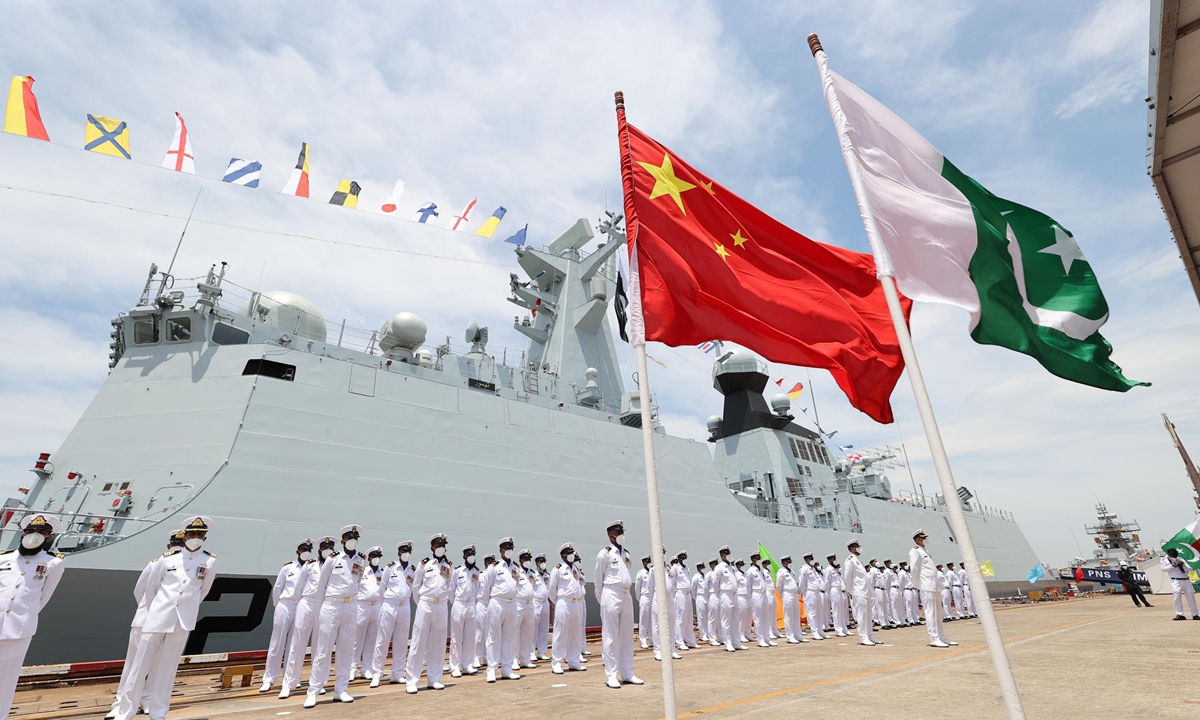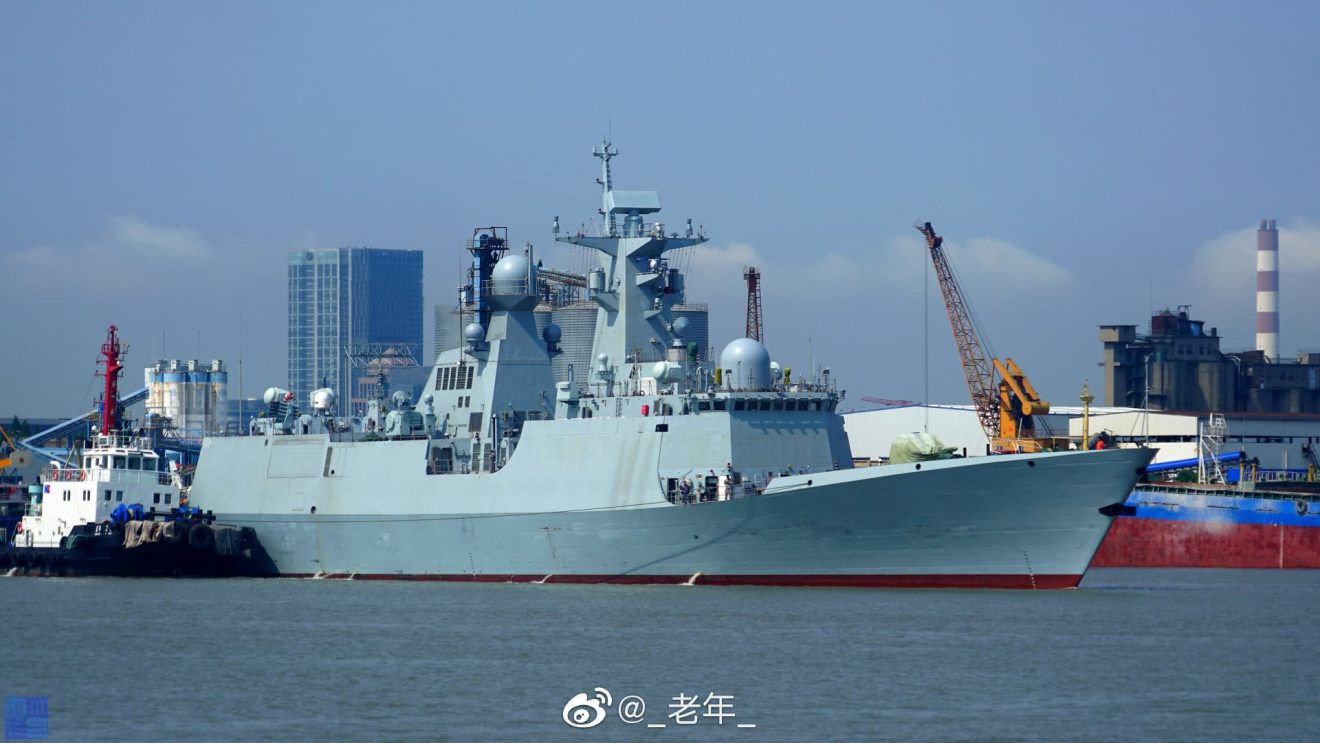Regarding the security challenges India faces, Admiral Kumar, the Navy chief, noted that China had maintained a continuous presence in the Indian Ocean Region (IOR) since 2008, using “anti-piracy operations” as the reason.
China has a naval base in Djibouti and was also involved in developing various ports in the IOR, like Sri Lanka, Myanmar, Pakistan, and other countries. The Gwadar port of Pakistan, built by China, has now become an essential base for Chinese ships in the sensitive region of the Arabian Sea.
In its latest bid, China appears to have focussed on Pakistan as the strong naval rival to counter India in the Indian Ocean Region (IOR). Creating proxies is the old strategy of colonialists and expansionists.
Beijing’s plan spreads over the IOR and the South China Sea. She wants to assert her hegemony over the islands scattered over the region.
Beijing is increasing its military presence around the self-governing island of Taiwan, seeking new security agreements with Pacific islands, and building artificial islands in disputed waters to fortify its territorial claims in the South China Sea, which the US and its allies have challenged.
China’s Navy is already the world’s largest by ship count and has been rapidly building new warships as part of a broader military expansion. It launched it is first domestically designed and built aircraft carrier in June, and at least five new destroyers are on the way soon.

Building Pakistan Navy
For a long time, China has been extending facilities to Pakistan to upgrade and strengthen its Navy. Three years ago, a Pakistani media report said that China would provide the Pakistani Navy with at least eight submarines by 2028, with four manufactured in China and the other four within the country.
Last year, China sold two naval ships to Pakistan to “protect” the Gwadar port in Baluchistan, which is part of the strategic China-Pakistan Economic Corridor (CPEC).
China claimed it was a “normal military trade cooperation and complied with the international commitments of the two countries.” The deal helps Pakistan to boost its naval strength. At the same time, it also allows China to park its naval ships to secure the crucial sea lanes, which it hopes will form part of the network to link the Belt and Road Initiative (BRI) connecting Asia to Africa and Europe.
As a result of strategic interests, some of the European countries also strengthened Pakistan’s Navy. In the 1990s, the UK government had sold Pakistan six Type 21 frigates.
In 1993-94, the UK government sold ex-RN AMAZON class frigates to Pakistan. Despite protests by India, France sold the Agosta 90B-class submarine to Pakistan in 1997. The Agosta 90B-class submarine was the forerunner of France’s Scorpene class submarines which India commissioned in 2017, known in India as INS Kalvari.
The US did not lag behind the Western powers in contributing its share to strengthening the Pakistan Navy. After lifting the arms embargo, the US provided maritime patrol aircraft to Pakistan. Islamabad was invited to join various naval drills. In the 1980s, the US sold warships to the Pakistani Navy.
But the Pressler Amendment disallowed military help to Pakistan and severely hampered the Pakistan Navy.
PTI reported that “China is building the first of four “most advanced” naval warships for its “all-weather ally” Pakistan as part of a major bilateral arms deal to ensure, among other things “balance of power” in the strategic Indian Ocean.”

Once constructed, the warship “will be one of the largest and technologically advanced platforms of the Pakistani Navy and strengthen the country’s capability to respond to future challenges, maintain peace and stability and the balance of power in the Indian Ocean region,” the report said.
It will also support the Pakistani Navy’s initiative of securing sea lanes for international shipping by patrolling distant waters, according to sources.
China has already taken over Pakistan’s strategic Gwadar port under the multi-billion China-Pakistan Economic Corridor (CPEC) and now looks to assist the Pakistani Navy in restoring the balance of power in India’s backyard.
Recently, China handed over a warship to Pakistan. The report said Type 054A is the best frigate in service with the PLA Navy. Military sources said the ship has a fully loaded displacement of about 4,000 metric tons and is equipped with advanced radars and missiles. About 30 Type 054As are in service with the PLA Navy.
Pakistan Navy’s Chief Admiral M Amjad Khan Niazi told a newspaper earlier this year that besides acquiring four modern naval frigates from China, Pakistan will also be getting eight Chinese submarines as part of the modernization of its Navy. The Pakistan Navy has contracted the construction of four Type 054A frigates.
Piracy Control As A Cover-Up
Recently, piracy cases have happened in the Arabian Sea peripheries. Piracy is a subject matter under the discussions of national security agencies. India has also faced piracy incidents.
Therefore, one can say that the piracy issue could be discussed in cooperation with other affected countries in the Far East or the Near East. China chose to make it a reason for prioritizing the Pakistan Navy for collaboration in facing the piracy challenge.
China has recently sent numerous vessels, civilian and naval forces, for surveillance in the Indian Ocean. The Hindu on September 23 reported, “Experts and regional governments say that many civilian ships are part of a Chinese civil-military fusion strategy that enhances its maritime capabilities.
China argues that her civilian cum naval forces are present in the Indian Ocean to prevent piracy. This is the patent excuse that China and Pakistan take recourse only to legitimize their surveillance mechanism in the IOR.
A Chinese scientific ship bristling with surveillance equipment docked in a Sri Lankan port. Hundreds of fishing boats anchored for months on disputed islands in the South China Sea. Ocean-going ferries, capable of carrying heavy vehicles and large loads of people, have been built by China.
All are ostensibly civilian ships, but experts and uneasy regional governments say they are part of a Chinese civil-military fusion strategy, little concealed by Beijing, that enhances its maritime capabilities.
“In the South China Sea’s Spratly Islands, for example, China pays commercial trawlers more than they can make by fishing simply to drop anchor for a minimum of 280 days a year to support Beijing’s claim to the disputed archipelago”, said Gregory Poling, director of the Centre for Strategic and International Studies’ Asia Maritime Transparency Initiative.
“China can use nominally civilian vessels that are state-directed, the state paid to eat away the sovereignty of its neighbors, but then plausibly deny that the state is responsible,” he said.
Why Strengthen The Pakistan Navy
Equipping Pakistan with frigates, submarines, and warships indicate that China wants to have an acquiescing ally like Pakistan on its side to counter the Quad proposal of the United States.
By supplying high-tech naval frigates and equipment to Pakistan, China is playing the double role of firstly challenging India’s maritime superiority, especially in the Indian Ocean, and secondly, conveying to the US that China is prepared to meet the challenges posed by Quad – the four countries led by the US.
The situation emerging in the IOR and the China Sea, where Chinese hegemony is more vibrant, does not bode well for the island states of the Far East. The US wants a regular naval presence in the China Sea.
Pakistan is reported to be thinking of giving another port to China close to Gwadar for parking its vessels. Owing to threats from Baluch Liberation Army, China would like to have an alternate parking lot close to Gwadar. It is a warning to Quad countries to take note of the ambitions and tactics of China in the IOR.
China has been imploring India not to join the Quad because, as Beijing puts it, the alliance has only one purpose: to contain China. But the containment policy is the brainchild of China. The String of Pearls aims at containing India and China-Pakistan camaraderie and is essentially taking its roots in that thinking.
eurasiantimes

